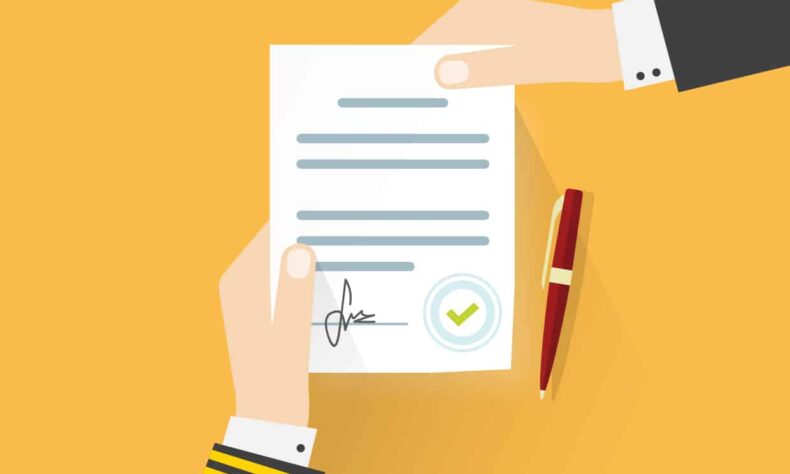
In the complex world of international trade, documentation plays a pivotal role in ensuring smooth and lawful transactions. Among these key documents, the Bill of Entry (BoE) and the Claused Bill of Lading are critical for both legal and logistical purposes. This article delves deeply into the importance of the Bill of Entry in the context of a Claused Bill of Lading, highlighting how they interrelate and contribute to international trade compliance and efficacy.
Understanding the Basics
What is a Bill of Entry?
A Bill of Entry is a crucial legal document submitted by importers or customs clearance agents to the customs department during the import process. This document details the nature, quantity, and value of goods being imported, along with information about the importer, exporter, and mode of transportation. The primary keywords here are bill of entry.
The Bill of Entry serves multiple purposes:
- Facilitating Customs Clearance: It allows customs authorities to assess duties and taxes.
- Compliance Verification: Ensures that all imported items comply with national regulations and international agreements.
- Statistical Data: Provides essential information for trade statistics and economic analysis.
What is a Claused Bill of Lading?
A Bill of Lading (BoL) is a comprehensive document issued by a carrier to acknowledge the receipt of cargo for shipment. A Claused Bill of Lading, also known as a Foul Bill of Lading, includes notations or conditions indicating issues with the cargo, such as damage or discrepancies in quantity or quality compared to the original contract. The secondary keywords of importance are claused bill of lading.
These notations, or clauses, might indicate:
- Damage to goods during loading.
- Discrepancies in the number of goods loaded.
- Signs of poor packaging.
The Claused Bill of Lading alerts all parties involved (shippers, consignees, banks, and insurers) that there may be problems with the cargo, which could affect claims or settlements.
Interrelationship and Importance
Due Diligence and Risk Management
The importance of the Bill of Entry in the context of a Claused Bill of Lading cannot be overstated, especially regarding risk management and due diligence. Here’s why:
Accurate Valuation and Duties
The Bill of Entry contains detailed descriptions and valuations of imported goods. When dealing with a Claused Bill of Lading, these details become indispensable for customs officials to correctly assess and apply duties and taxes. If the BoE reflects accurate and meticulously detailed information, it helps mitigate discrepancies and disputes in taxation.
For instance, suppose a Claused Bill of Lading notes cargo damage. The Bill of Entry’s accurate valuation helps in reassessing the goods’ value, thus adjusting the duties payable and facilitating smoother customs clearance.
Insurance Claims and Compensation
A Claused Bill of Lading often triggers the need for insurance claims due to cargo damage or losses. The Bill of Entry provides supporting information needed to verify these claims. The documented value and description of the goods in the BoE serve as a basis for evaluating compensation, ensuring that the importer or consignee receives the correct payout.
Compliance with Customs Regulations
Customs authorities globally rely on proper documentation to enforce regulations and tariffs. The Bill of Entry is a keystone document in this regard, providing a comprehensive declaration of the imported goods. When linked with a Claused Bill of Lading, the BoE ensures authorities can efficiently manage the import process despite any noted discrepancies.
Preventing Fraud
Augmenting the BoE with details from a Claused Bill of Lading serves as a deterrent against fraudulent activities. Discrepancies or damages noted in the Claused Bill of Lading are counterchecked with the Bill of Entry declarations, thus averting undervaluation of goods, misclassification, or other malpractices.
Avoiding Legal Complications
A Bill of Entry that aligns with the conditions noted in a Claused Bill of Lading protects importers from potential legal complications. Importers can provide verifiable proof of the goods’ condition upon arrival, helping to resolve disputes swiftly.
Operational Efficiency and Accuracy
The combination of the Bill of Entry and a Claused Bill of Lading streamlines various logistics and administrative processes:
Streamlining Customs Clearance
Unified and accurate data between the Bill of Entry and the Claused Bill of Lading reduces clearance time. Customs officials can efficiently cross-check the goods, leading to quicker resolution of any issues and faster release of cargo.
Enhancing Record Keeping
Both documents contribute substantially to robust record-keeping practices. Detailed records provided by the Bill of Entry, complemented by the conditions in the Claused Bill of Lading, ensure all parties maintain accurate and comprehensive documentation for internal audits and external reviews.
Practical Implications and Case Studies
Case Study 1: Handling Damaged Goods
Consider an importer who receives a shipment of electronic goods noted as damaged in the Claused Bill of Lading. The Bill of Entry accurately reflects the shipment’s condition and value. Customs assesses the details and reduces the import duties appropriately. Concurrently, the importer leverages this information for a successful insurance claim, demonstrating the interconnected roles these documents play.
Case Study 2: Resolving Quantity Discrepancies
A Claused Bill of Lading indicates a shortage in the number of imported raw materials. The Bill of Entry, submitted preemptively, indicates the expected quantity and value. Upon reconciliation, customs finds the discrepancy valid. The timely and accurate documentation helps avoid potential fines for undervaluation or misdeclaration, showcasing the importance of consistent and precise documentation.
Practical Application in Compliance
Global trade compliance mandates importers to furnish accurate import declarations. The Bill of Entry, combined with insights from Claused Bills of Lading, provides a detailed and honest assessment of cargo conditions. This approach not only fosters transparent trade practices but also strengthens an organization’s compliance posture, ensuring adherence to international standards and avoiding regulatory scrutiny.
Emerging Trends and Technological Integration
Digitalization of Trade Documents
The digital transformation of global trade has spurred advancements like electronic Bills of Entry and e-Bills of Lading, revolutionizing how these documents interrelate. Digital platforms enable real-time updates and seamless sharing of information between all stakeholders, ensuring that discrepancies or conditions noted in Claused Bills of Lading are promptly reflected in electronic Bills of Entry.
Blockchain Technology
Blockchain technology offers a tamper-proof, transparent ledger for documenting and verifying trade transactions. Integrating blockchain with Bills of Entry and Claused Bills of Lading enhances data integrity, reduces fraud, and facilitates smoother dispute resolution.
Automated Systems
Automated customs clearance systems streamline the processing of Bills of Entry in the context of Claused Bills of Lading. Artificial Intelligence (AI) and Machine Learning (ML) can predict discrepancies or issues, facilitating proactive resolutions.
Best Practices for Importers and Exporters
Accurate Documentation
Ensure meticulous accuracy in all trade documents. Align the Bill of Entry with the Claused Bill of Lading to avoid discrepancies and potential legal issues.
Regular Training
Invest in regular training programs for staff involved in import-export operations. Keep them updated on changes in regulations and best practices in documentation.
Leverage Technology
Adopt digital tools for trade documentation. Electronic documents, blockchain solutions, and automated systems can enhance efficiency, accuracy, and compliance.
Foster Transparent Communication
Promote open and transparent communication with all stakeholders, including shipping companies, insurers, and customs authorities. Clear exchanges of information can prevent and swiftly resolve issues.
Conduct Periodic Audits
Regularly audit your documentation processes and practices. Ensure all documents, especially the Bill of Entry and Claused Bills of Lading, are consistently accurate and compliant with legal requirements.
Conclusion
The Bill of Entry’s role in the context of a Claused Bill of Lading is multifaceted and indispensable. Together, they form a robust mechanism for ensuring transparent, lawful, and efficient international trade. Accurate documentation, facilitated by technological advancements, will continue to be pivotal in navigating the complexities of global trade, safeguarding interests, and fostering smooth commercial operations.
Importers, exporters, and all stakeholders in the supply chain must recognize and optimize the interrelationship between these critical documents. Doing so not only ensures regulatory compliance but also enhances operational efficiency, mitigates risks, and fosters trust in the global trading ecosystem.




